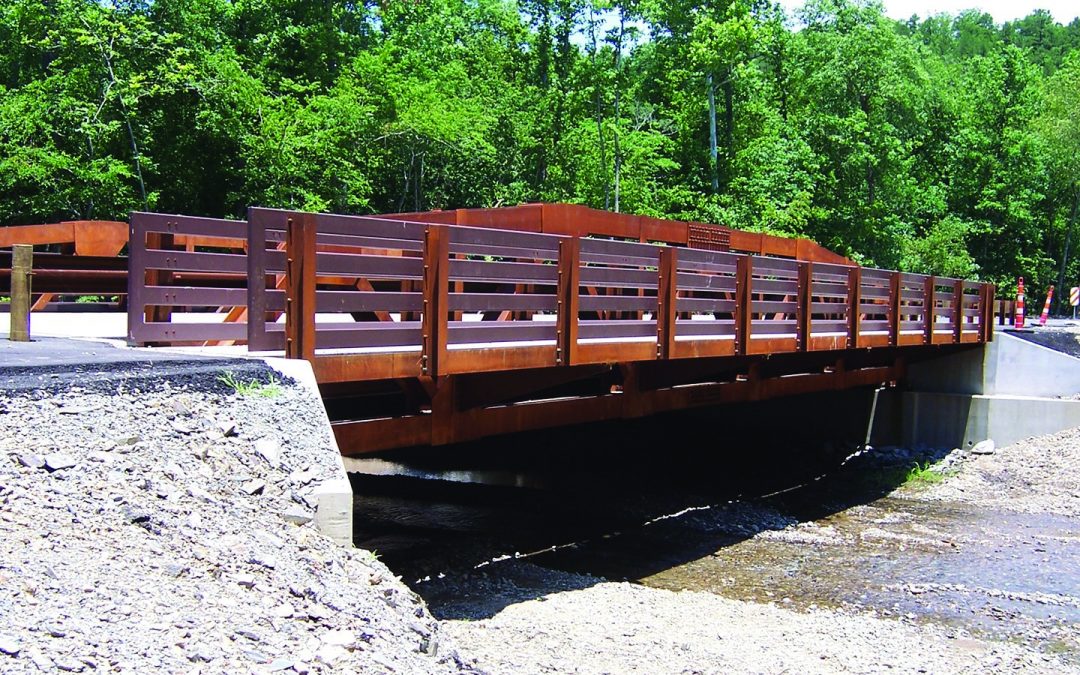Crafton Tull

“We can think of no greater privilege than giving back to the people and organizations that have trusted us to build the towns where they live, work, play, and raise their families.” –Bob Crafton and Lem Tull
Bob Crafton grew up on a farm in Corning, Arkansas, the youngest of fourteen children. When one of his older brothers offered to loan him the money to attend college, he jumped at the chance and majored in civil engineering, because his favorite high school teacher suggested it. After spending two years at Arkansas Tech, Crafton transferred to the U of A, where he met Lem Tull. Tull was a North Little Rock native who had been interested in engineering ever since he helped a survey crew make a topographic map for his church.
Crafton and Tull graduated and parted ways, both going to work for the Arkansas State Highway and Transportation Department, but in different areas. One day, the two ran into each other and Tull asked Crafton if he could work for him. Crafton agreed, and Tull managed to get a transfer from bridge design to construction. After working together for a while, the two men decided to open their own business.
It was a difficult decision. As Crafton explained, he “had the best of all worlds” at the highway department. “Things were going great, but I had the ambition to work for myself.” Crafton and Tull agreed that although starting their own business was risky, there was a promising opportunity for a civil engineering company in the Northwest Arkansas area. They opened Crafton Tull in Rogers in 1963.
The company got off to a rough start, opening three days before John F. Kennedy was shot. Crafton and Tull both remember the sadness and uncertainty of that time, as not only their lives but the whole country was in upheaval. With the support of their families and each other, the two partners made it through those times. “It was tough getting started,” Crafton remembered, “but we hustled and struggled and managed to make it.”

Crafton Tull realigned a 1,000 foot section of Kanis Road in Little rock, Ark., in order to improve the safety of the road. The existing bridge and culver were removed and replaced.
Crafton Tull secured their place in the Arkansas landscape quickly, taking on several contracts for the highway department and embarking on a huge development project in the Beaver Lake area. For this project, the company purchased an IBM mainframe computer—the only one in the state at the time.
Over time, Crafton Tull expanded its services, offering architecture, landscape architecture, interior design and surveying. The company currently has offices in Rogers, Tulsa, Conway, Little Rock, Oklahoma City and Russellville. Its portfolio is broad, including projects at Hendrix College, the U of A, the Tulsa Regional Chamber of Commerce, the Tulsa Zoo, the Pulaski County Trail system, the historic Coleman Theatre, and many more.
Crafton and Tull agree that the best thing about their company is its employees. “We worked really hard to have a good reputation,” said Tull “to have our employees want to work here.” The company supports its employees, as well as its community. For its 50th anniversary, Crafton Tull committed to 50 acts of kindness in the communities it serves. In 2013, Crafton Tull employees gave blood, donated to food banks, planted trees, cleaned up highways and streams and participated in many other activities that supported local communities and community organizations. “We can think of no greater privilege than giving back to the people and organizations that have trusted us to build the towns where they live, work, play, and raise their families,” the company’s website explains.

Crafton Tull planned, designed and constructed administration services for a water tower for the City of Duncan, OK and an extension of a water main to connect the new tower to the existing distribution system.
Tull retired in 1996, and these days, he stays active in his church, and with his children and grandchildren. In the past, Tull has been very active with the university and civil engineering department as a member of the Arkansas Academy of Civil Engineering, as well as other boards and commissions in the community. These days, health issues have limited his involvement, and he is focusing on spending time with his family. His son, Jim Tull, is the chief financial officer of the company.
Crafton retired in 2000, and stays involved with his community. He has served as a member of the Rogers School Board, Rogers Chamber of Commerce, and the Board of Trustees of Northwest Arkansas Community College. He is currently a member of the Arkansas Higher Education Coordinating Board and the Good Roads Transportation Council. Crafton is a founding member of the Arkansas Academy of Civil Engineering, and he was named a Distinguished Alumnus of the College of Engineering in 2007. His son, Matt, is the current president and CEO of the company. The two families still live near each other in Rogers.
McClelland Consulting Engineers, Inc.

Above: McClelland has designed and overseen construction of the turf system in the Donald W. Reynolds Razorback Stadium three times in the past 45 years.
Jim McClelland grew up in the engineering world, the son of a consultant and engineer and grandson of C.K. McClelland, an agronomy professor at the U of A. His father, J.E. McClelland Sr., opened McClelland Consulting Engineers, Inc., in Fayetteville in 1963. “Mr. Mack,” as he was called, was very active in the Fayetteville community, involved in his church, the Rotary Club and the city board.
McClelland explained that, after growing up in Fayetteville, attending the U of A was “a natural transition.” He has fond memories of his time as an engineering student, studying with his classmates for hours in the break room of Engineering Hall, doing practice problems on the chalkboards.
When he graduated, he worked for Melburger Engineers. “Max Melburger was a mentor and very influential on my career,” he remembered.
After ten years with Melburger, McClelland opened an office of his father’s company, McClelland Engineers, in Little Rock in 1977. When his father retired in 1986, McClelland moved the headquarters of the company from Fayetteville to Little Rock and ran the company until 2009, when he “semiretired.”
McClelland Engineers has worked on some of the most iconic facilities in Arkansas, including the William Jefferson Clinton Library and the Heifer International headquarters, both platinum LEED certified buildings.
The company has also been involved in the construction of almost all the sports facilities on the U of A campus, including the Bud Walton Arena, George Cole field at Baum Stadium and the Donald W. Reynolds Stadium. McClelland also led an effort to renovate and expand the Sigma Nu chapter house in the early 90s and then provided the civil design for a new house, pro-bono, in 2009.
McClelland explained that the focus of his career has been advancing the quality of life through infrastructure improvements all over Arkansas. A sign on his desk reminds everyone who comes into his office that “Arkansas always comes first.” Over the past 50 years, McClelland Engineers has improved many areas of the state, working on the water systems, transportation, drainage systems, airports and educational facilities in most of the 74 counties.

Above: McClelland was the civil engineering firm for the Williams Jefferson Clinton Library and the Clinton Presidential Park Bridge.
A licensed Professional Engineer, McClelland has received numerous awards and recognitions over the years, including Professional of the Year from the Arkansas Public Works Association, Boss of the Year from the National Association of Women in Construction, and Engineer of the Year from the Arkansas Society of Professional Engineers.
He has served as president of the Arkansas Society of Professional Engineers and the Arkansas State Board of Health. He is a member of the Arkansas Academy of Civil Engineering and was appointed and served as president of the Arkansas State Board of Registration for Professional Engineers and Land Surveyors in 1985 by Governor Bill Clinton. He now serves on the Arkansas Children’s Hospital Foundation Board, the Old State House Museum Board, the Pulaski county bridge facilities board, and is a docent giving tours at the Clinton Presidential Library.
McClelland and his siblings have established the J.E. & Maurice A. McClelland Endowed Scholarship at the U of A , which has supported more than a dozen deserving civil engineering students, and they have given a keystone endowment to the Fayetteville Public Education Foundation, which is used for engineering education at the high school.
McClelland is proud that 4 generations of his family have been involved with the U of A. He and his wife, Pat, have two sons, Jay and Kirk, and two grandchildren, Sophie and Nick.



